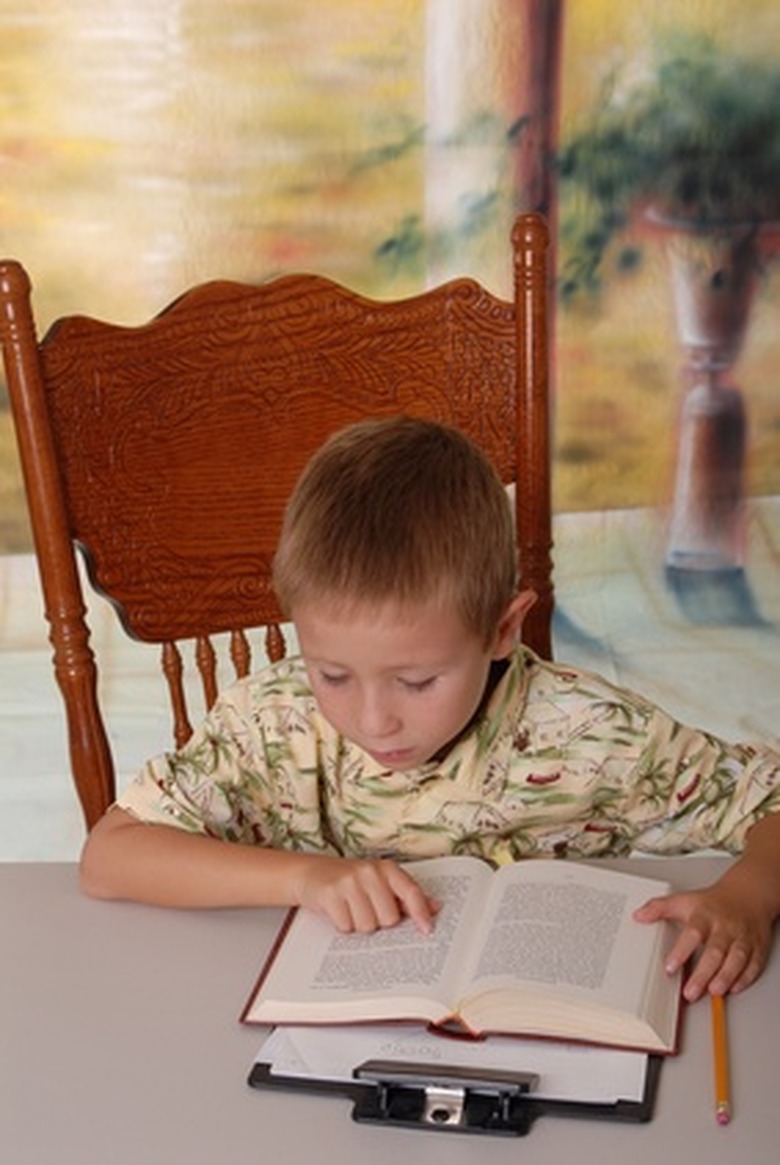Attribution Theory Classroom Activities
Attribution theory holds that people naturally want to assign a reason for their successes and failures. The reasons they choose have a significant impact on their future performance. When a student fails a test, for example, she is more likely to do better on the next test if she thinks she didn't study enough rather than if she blames her teacher. Classroom activities using attribution theory can show how expectations can become self-fulfilling prophecies.
Litter Experiment
Litter Experiment
In a 1975 study published in the "Journal of Personality and Social Psychology," researchers used attribution theory in a fifth-grade classroom to change student behavior. First, the researchers handed out candies wrapped in plastic to the class just before recess. After the students left, they counted the number of wrappers on the floor and in the trash can. For the next two weeks, the teacher, the principal and others praised the students for being neat. The researchers visited the classroom a second time and passed out wrapped candies. This time, they discovered a lot more wrappers in the trash than on the floor. They concluded they had achieved this desired result simply by changing the students' expectations of themselves. The students believed they were neat, so they became neater.
Math Achievement Experiment
Math Achievement Experiment
In a separate study published in the same issue of the "Journal of Personality and Social Psychology," the same researchers tested attribution theory using before-and-after measurements of math achievement and self-esteem. They developed scripts for the teachers to use with each student. The scripts provided attribution training, persuasion training or reinforcement training. The attribution script told students they were working hard at math and to keep trying. The persuasion training essentially told the students that they "should" be good at math. The reinforcement training used phrases such as "I'm proud of your work" and "excellent progress." At the end of the study, all students showed improved self-esteem, but only the students who had received attribution training improved their math scores. The explanation, the researchers concluded, is that students who received attribution training attributed their math performance to their own hard work. This motivated them to work harder, and their results improved.
Spelling Bees
Spelling Bees
Attribution theory supports the view that only students who think they are good spellers are motivated by spelling bees. Knowing this, teachers can structure spelling bees to motivate students who are not likely to win the competition. A team spelling competition, in which evenly matched the teams contain both strong and poor spellers, can motivate spellers of all abilities by making them believe they have a chance to win. Structuring spelling competitions so that students spell words that match their abilities provides a more attainable — and motivational — goal. Awarding students for reaching a high level of achievement, such as 90 percent of words spelled correctly, engages a greater number of students by providing the expectation that they can achieve success.
References
- Education: Attribution Theory
- Journal of Personality and Social Psychology: "Attribution vs. Persuasion As a Means for Modifying Behavior"; R.L. Miller, et al.; 1975
Cite This Article
MLA
Enright, Carolyn. "Attribution Theory Classroom Activities" sciencing.com, https://www.sciencing.com/attribution-theory-classroom-activities-7859532/. 24 April 2017.
APA
Enright, Carolyn. (2017, April 24). Attribution Theory Classroom Activities. sciencing.com. Retrieved from https://www.sciencing.com/attribution-theory-classroom-activities-7859532/
Chicago
Enright, Carolyn. Attribution Theory Classroom Activities last modified March 24, 2022. https://www.sciencing.com/attribution-theory-classroom-activities-7859532/
